Discover the price of biodigester chemicals in Kenya and why biodigester enzymes are the best option for efficient waste management.
Bio Digester Kenya offers top-quality enzymes to keep your system running smoothly.
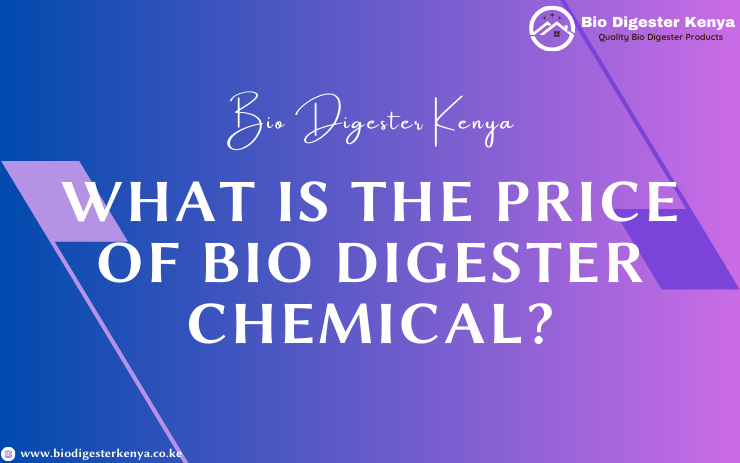
Are you wondering about the cost of biodigester chemicals and how they can benefit your waste management system?
If you’re living in Kenya, especially in residential or commercial spaces, chances are you’ve come across biodigesters as an efficient human waste management solution.
But the question that comes to mind is: What is the price of biodigester chemicals, and why should you consider biodigester enzymes over other options?
In this article, we’ll dive into the types of chemicals used in biodigesters, why biodigester enzymes are the best choice, and how their cost compares to other options.
What Are Biodigester Chemicals?
Biodigester chemicals play an essential role in ensuring that the biodigester works efficiently.
These chemicals, particularly enzymes, aid in breaking down human waste into simpler substances like water and air, which are then safely absorbed into the environment.
The Role of Chemicals in Biodigesters
Chemicals in biodigesters, especially enzymes, are responsible for speeding up the natural decomposition process.
Without them, the system would become sluggish, leading to blockages and unpleasant odors.
How Biodigester Chemicals Help in Waste Breakdown
Biodigester enzymes help by breaking down waste more effectively, turning human waste into water and air.
The water is then channeled to a soaking area where it is absorbed into the ground, making this a sustainable solution for waste management.
Types of Biodigester Chemicals
When it comes to managing your biodigester, not all chemicals are created equal.
Let’s explore the types of chemicals available and why some are better than others.
Biodigester Enzymes: The Best Choice
Biodigester enzymes are specially formulated to enhance microbial activity within the biodigester.
These enzymes ensure that the waste is broken down efficiently, leading to fewer blockages and less maintenance.
They are safe, eco-friendly, and designed specifically for biodigester systems.
Organic and Inorganic Chemicals
Some people may consider using organic or inorganic chemicals.
While organic chemicals are relatively safer, inorganic chemicals can cause more harm than good by disrupting the microbial balance.
They might work temporarily but often lead to long-term issues.
Household Chemicals: A Bad Idea
It might seem like a quick fix to pour bleach or other household cleaners into your biodigester, but this is a recipe for disaster.
These chemicals kill the beneficial bacteria that are crucial for the biodigester’s function, leading to system failure.
Why Biodigester Enzymes Are the Preferred Solution
Safe for the Environment
Biodigester enzymes are natural and do not produce harmful byproducts.
They help maintain the health of the microbial ecosystem within your biodigester, which in turn keeps your system running smoothly and minimizes environmental impact.
Improved Efficiency in Waste Breakdown
Using biodigester enzymes ensures that waste is broken down at an optimal rate, preventing issues like clogging or overflowing.
This means fewer maintenance costs and a more reliable system overall.
Cost-Effectiveness in the Long Run
While biodigester enzymes may have an upfront cost, they save you money in the long run by reducing the need for frequent maintenance and repairs.
How Biodigester Enzymes Work
Enzymes work by enhancing the natural microbial processes within your biodigester.
They help beneficial bacteria break down waste efficiently, ensuring continuous decomposition and reducing the chances of blockages or odors.
The Price of Biodigester Chemicals
Factors Affecting the Cost of Biodigester Enzymes
Several factors can affect the price of biodigester chemicals, such as the size of your biodigester, the quality of the enzymes, and how often you need to apply them.
Larger biodigesters will require more enzymes, which can increase the overall cost.
Average Price Ranges for Biodigester Enzymes in Kenya
In Kenya, the cost of biodigester enzymes can range from Ksh 2,000 to Ksh 10,000 depending on the size and type of your biodigester.
For residential systems, you may need a smaller amount, while commercial spaces might require more frequent enzyme applications.
Why the Price of Biodigester Chemicals Varies
Quality of the Enzymes
Higher-quality enzymes will often cost more, but they are worth the investment due to their increased effectiveness and longevity.
Cheaper enzymes might not work as efficiently and could require more frequent applications.
Size and Type of Biodigester
Larger biodigesters will naturally need more enzymes to keep running smoothly, while smaller residential systems may only require a minimal dosage.
Frequency of Application
The frequency of enzyme application can also impact the cost.
Most systems require enzymes to be added every few months, but high-traffic commercial biodigesters may need more frequent dosing.
Comparing the Price of Enzymes vs Other Chemicals
Longevity of Enzymes
Unlike other chemicals that might need frequent application, biodigester enzymes tend to last longer and are more effective over time, making them a more economical choice.
Maintenance Costs of Other Chemicals
Using harsh or inorganic chemicals might lead to more frequent system breakdowns, resulting in higher maintenance costs over time.
How Much Biodigester Enzymes Should You Buy?
Calculating Dosage Based on Biodigester Size
To determine how much enzyme you need, it’s crucial to consider the size of your biodigester.
A larger system will need more enzymes to maintain efficiency.
Frequency of Enzyme Application
For most systems, applying enzymes every three to six months is recommended.
This ensures continuous waste breakdown and prevents system failure.
Why Choose Bio Digester Kenya for Your Biodigester Chemicals?
High-Quality Products
At Bio Digester Kenya, we pride ourselves on providing top-quality biodigester enzymes designed to meet the specific needs of Kenyan homes and businesses.
Affordable Pricing and Expert Services
We offer competitive pricing on our biodigester enzymes, and our expert team is always available to provide installation and maintenance support.
Tailored Solutions for Kenyan Homes and Businesses
Whether you’re looking for a solution for your home or commercial space, we have the right products to meet your needs.
Our biodigester enzymes are tailored to ensure maximum efficiency in Kenyan conditions.
Benefits of Using Biodigester Enzymes Over Other Chemicals
No Harmful Byproducts
Unlike harsh chemicals, biodigester enzymes do not produce harmful byproducts that could affect the environment or your biodigester.
Odor Control and Efficiency
By improving waste breakdown, biodigester enzymes help eliminate foul odors and keep your system running efficiently.
Reduced Maintenance Costs
Using biodigester enzymes can significantly reduce your system’s maintenance costs by preventing clogs and other issues.
How to Properly Use Biodigester Enzymes
Step-by-Step Guide on Enzyme Application
- Measure the appropriate dosage based on your biodigester size.
- Pour the enzymes into the biodigester.
- Ensure the system is well-sealed to promote optimal bacterial activity.
Common Mistakes to Avoid
Avoid using household chemicals, as they can disrupt the balance of bacteria and reduce the effectiveness of the enzymes.
Signs Your Biodigester Needs Enzyme Treatment
- Foul odors coming from the system
- Slow waste breakdown
- Overflowing or clogged wastewater
Environmental Impact of Biodigester Enzymes
Reducing Pollution and Groundwater Contamination
Biodigester enzymes help reduce pollution by breaking down waste efficiently and preventing harmful runoff into the environment.
A Sustainable Waste Management Solution
Using biodigester enzymes contributes to a more sustainable waste management system, reducing the environmental footprint of your home or business.
FAQs
1. What is the best chemical for biodigesters?
Biodigester enzymes are the most effective and safest option for biodigesters, as they enhance microbial activity without harming the environment.
2. How often should I add enzymes to my biodigester?
Enzymes should typically be added every three to six months, depending on the size and usage of your biodigester.
3. Are biodigester enzymes safe for the environment?
Yes, biodigester enzymes are eco-friendly and do not produce harmful byproducts, making them a sustainable choice for waste management.
4. How much do biodigester enzymes cost in Kenya?
The cost of biodigester enzymes in Kenya ranges from Ksh 2,000 to Ksh 10,000, depending on the size and type of your system.
5. Can household chemicals be used in biodigesters?
No, household chemicals can harm the beneficial bacteria in your biodigester, leading to system failure.
Conclusion
When it comes to keeping your biodigester running smoothly, enzymes are the best choice. They are safe, efficient, and cost-effective, making them a superior option compared to other chemicals.
At Bio Digester Kenya, we offer high-quality biodigester enzymes that are perfect for Kenyan homes and businesses.
Make the smart choice today and invest in biodigester enzymes to keep your waste management system functioning efficiently.

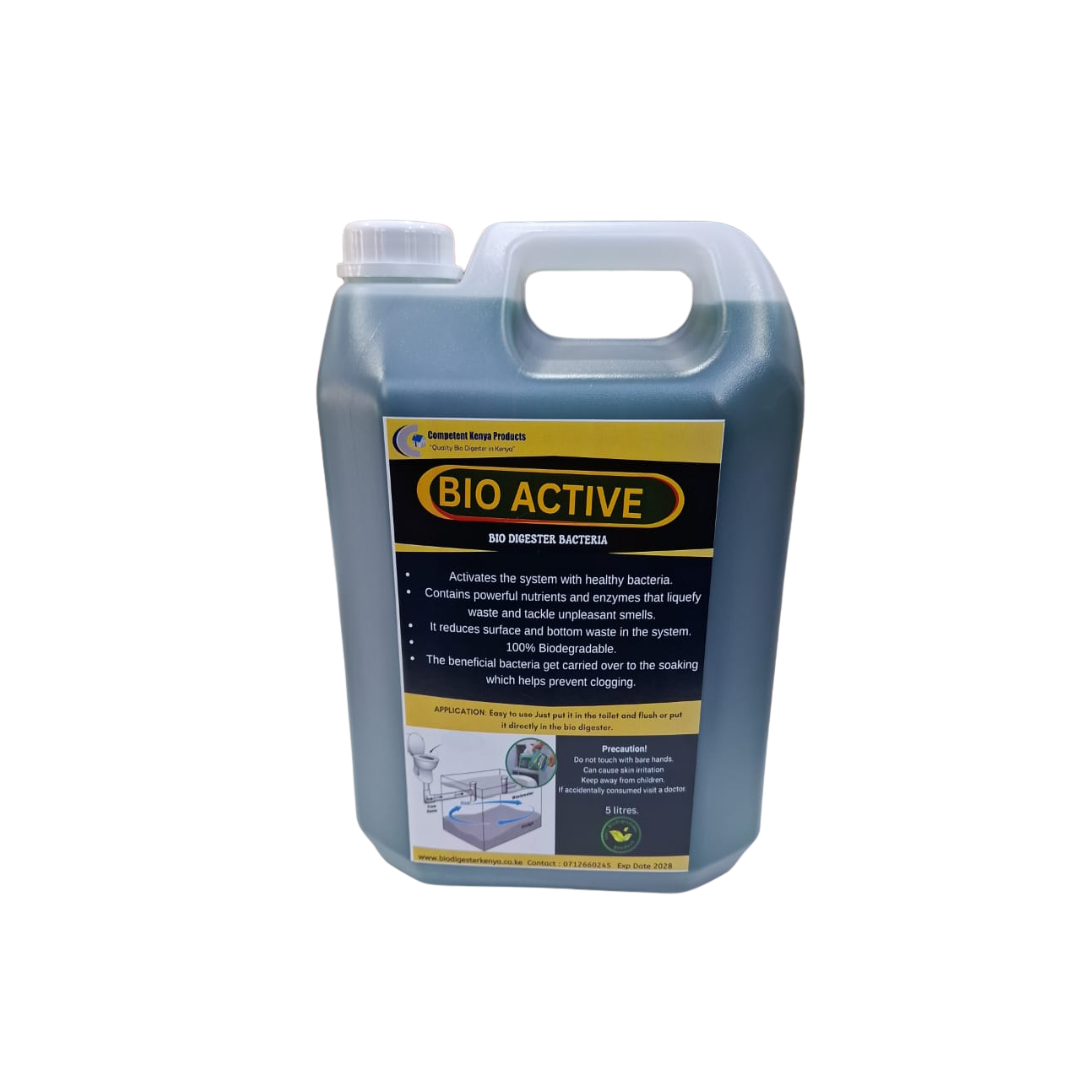


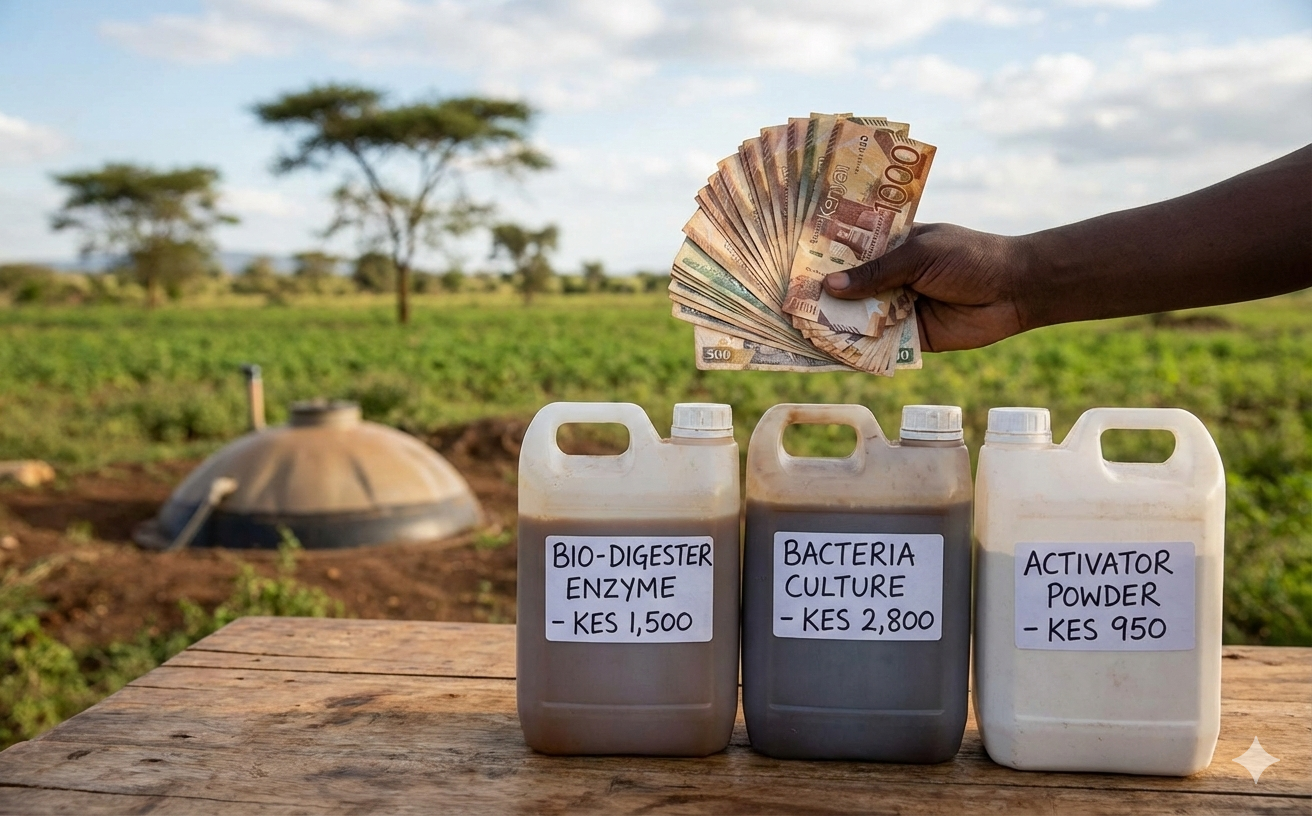
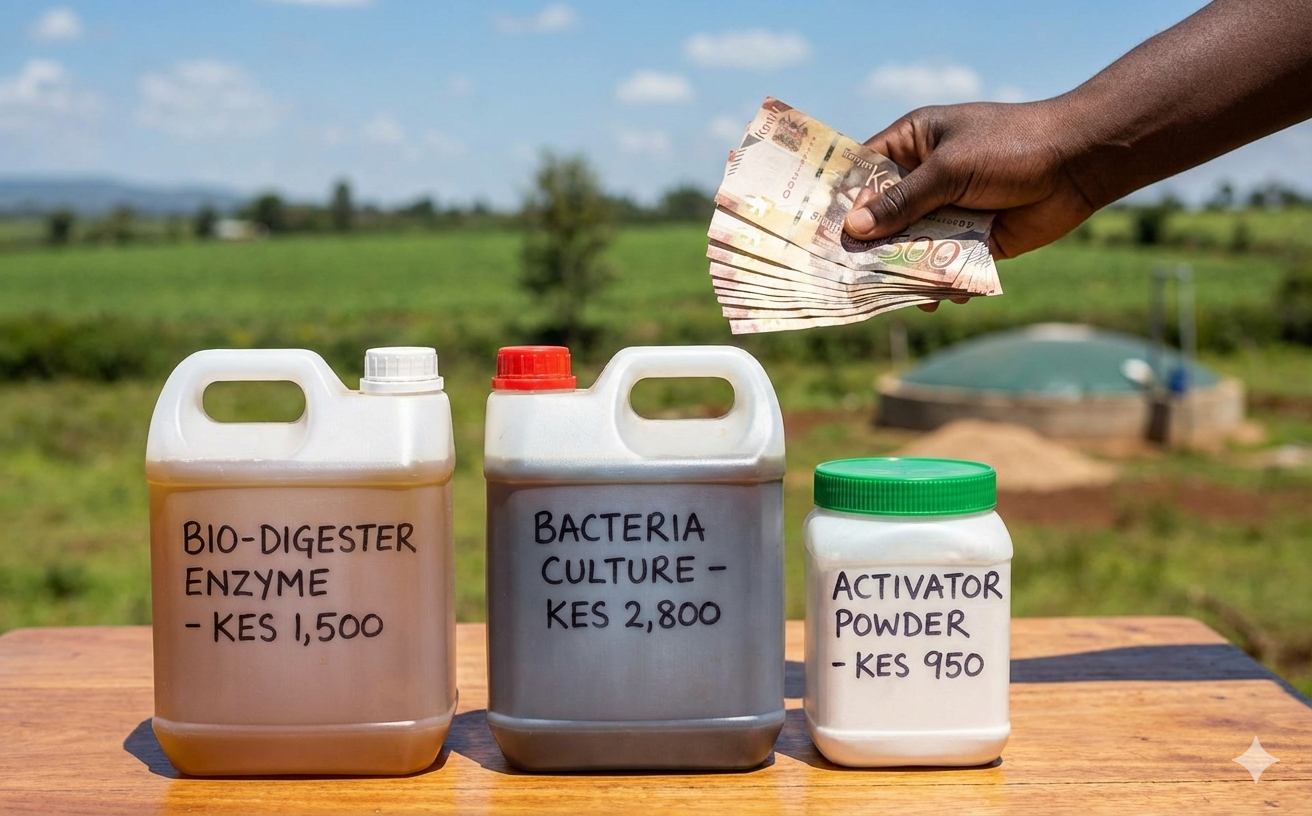
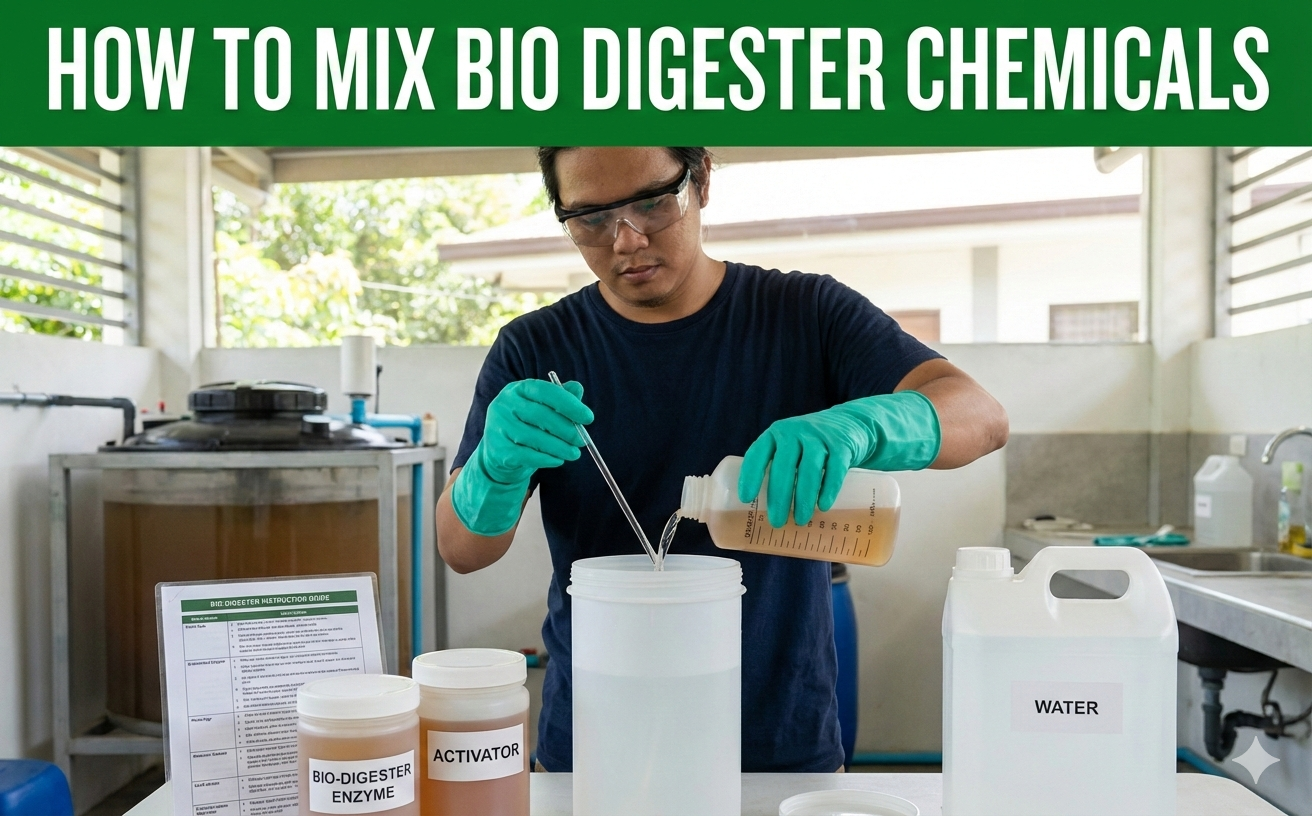



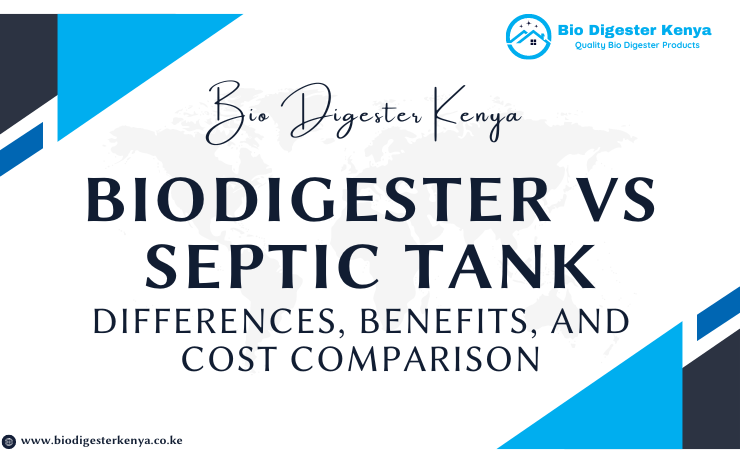


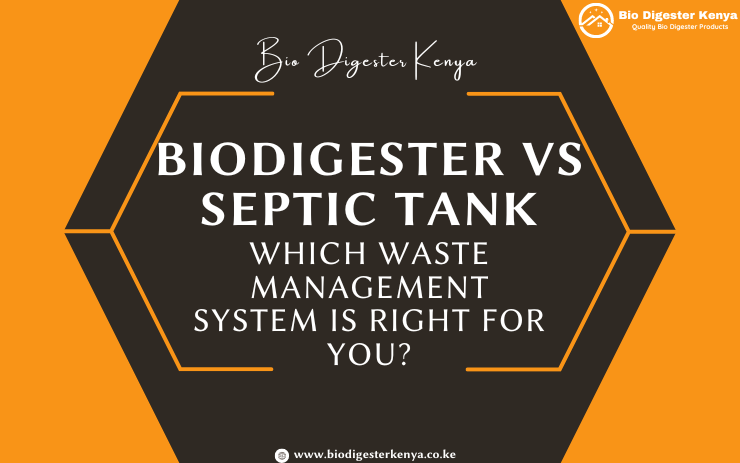
















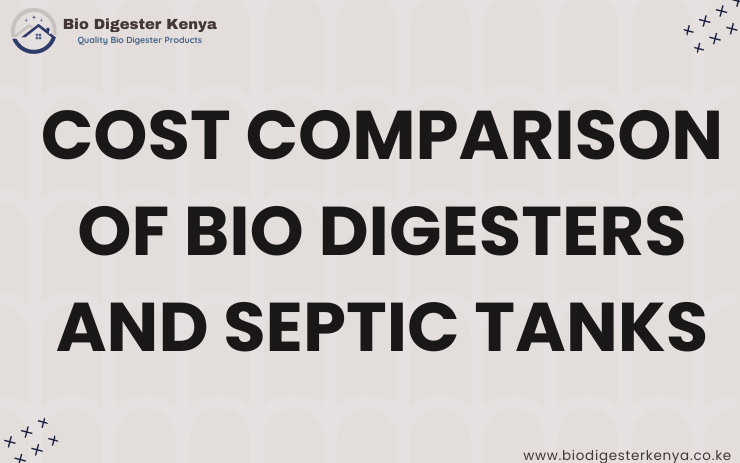

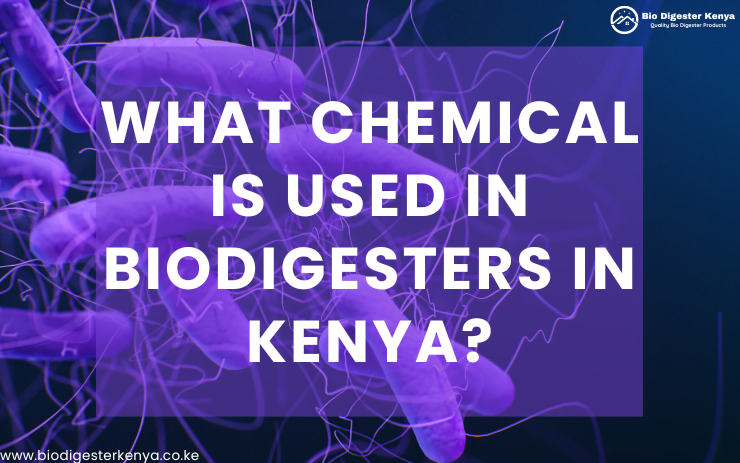



































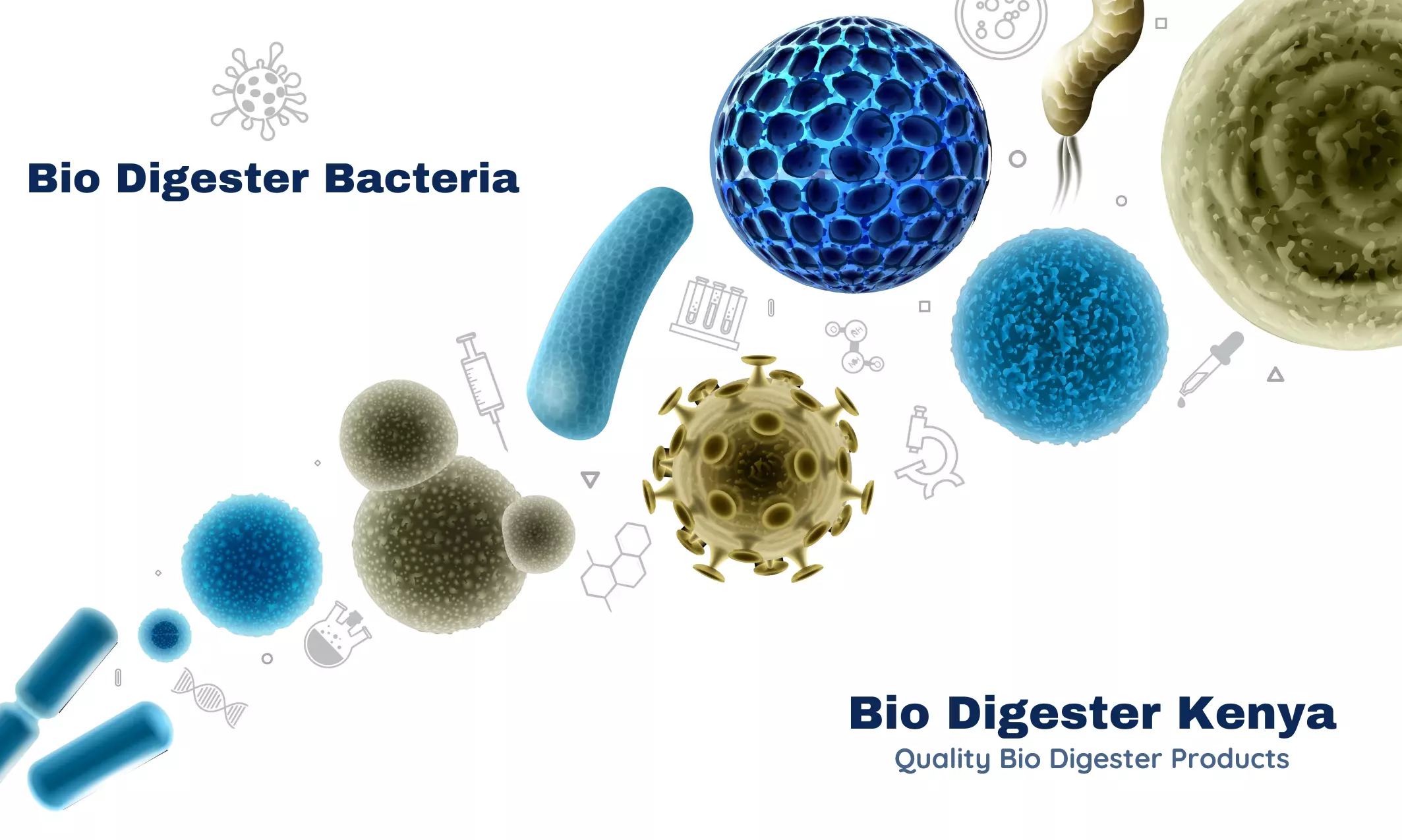

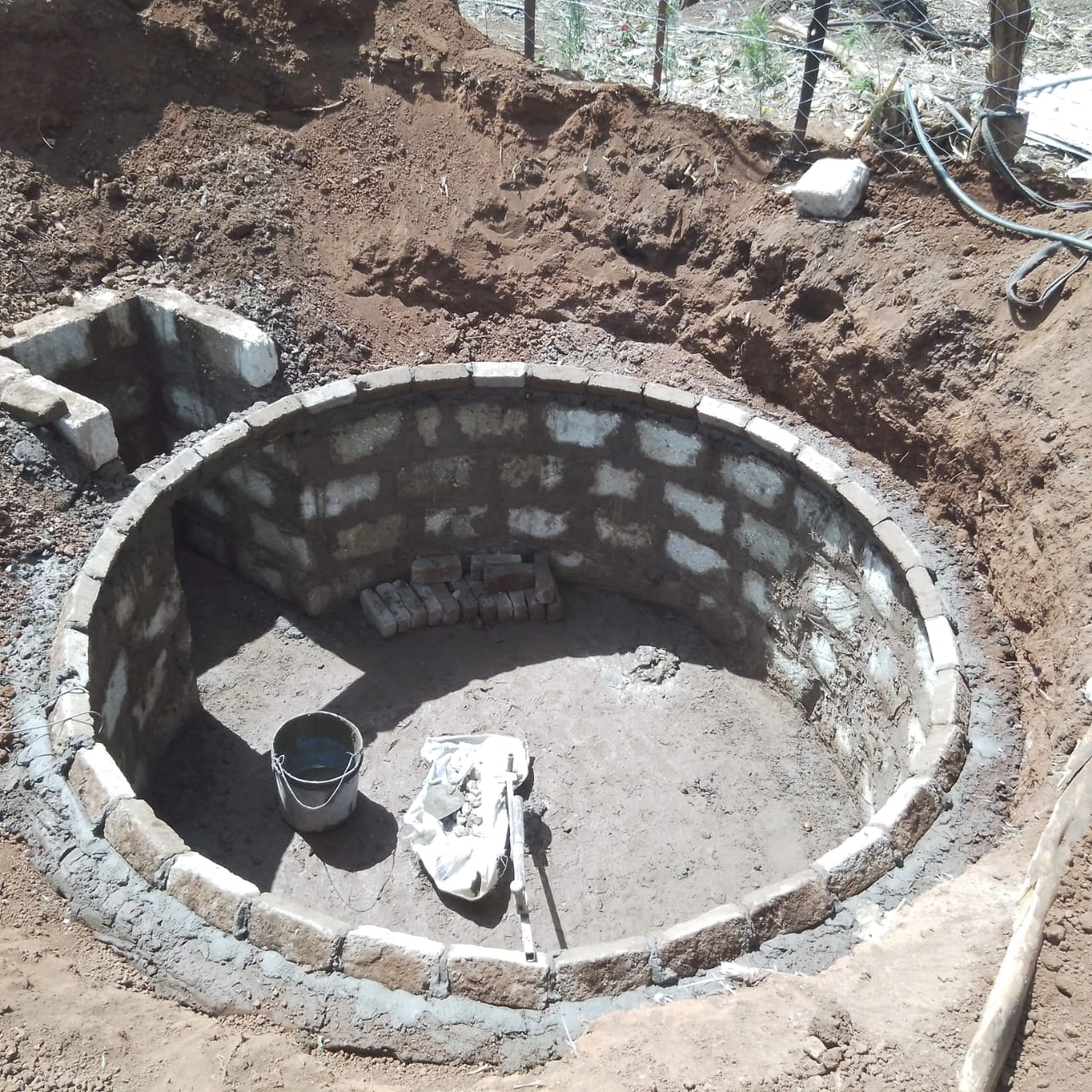
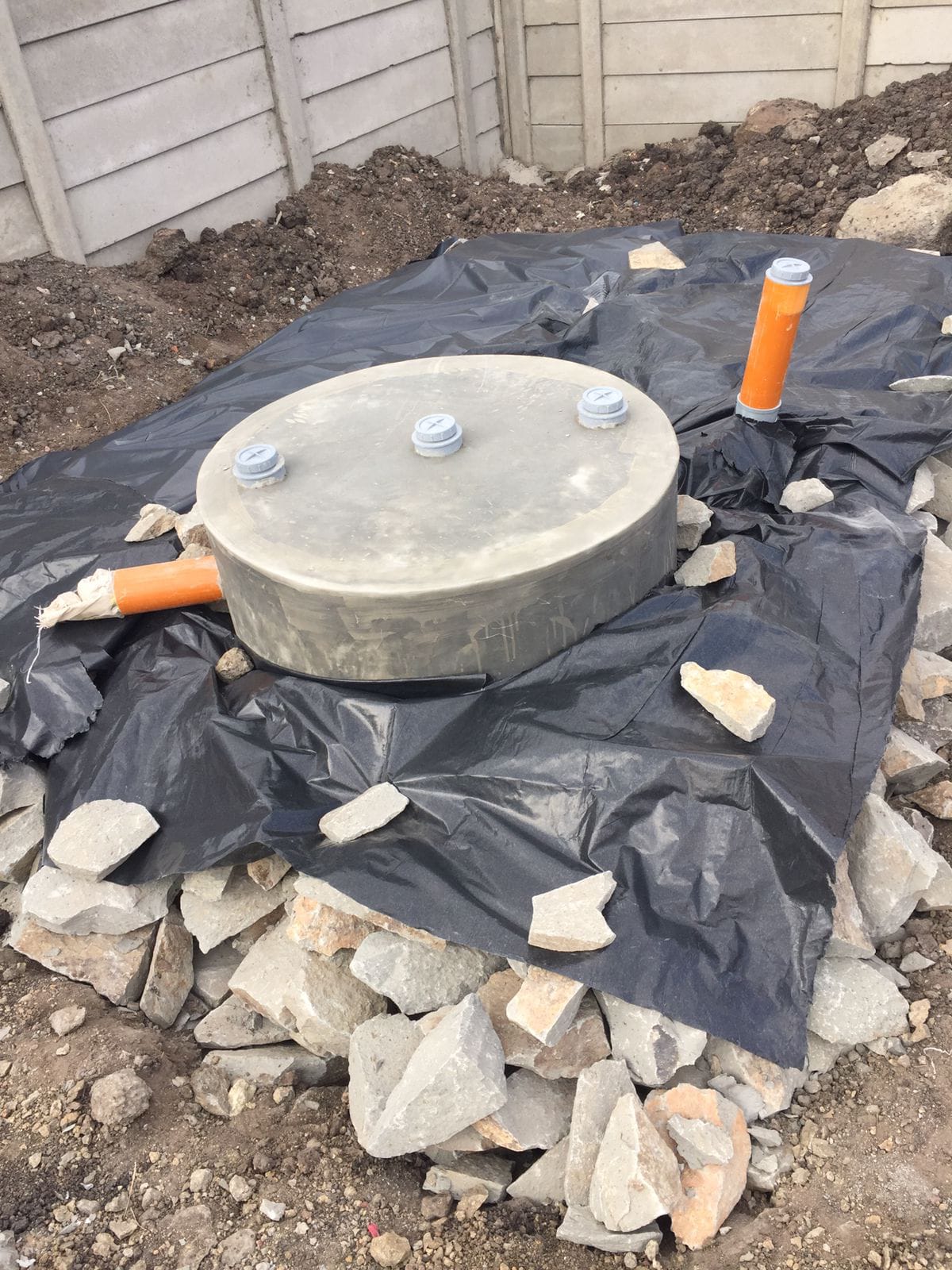
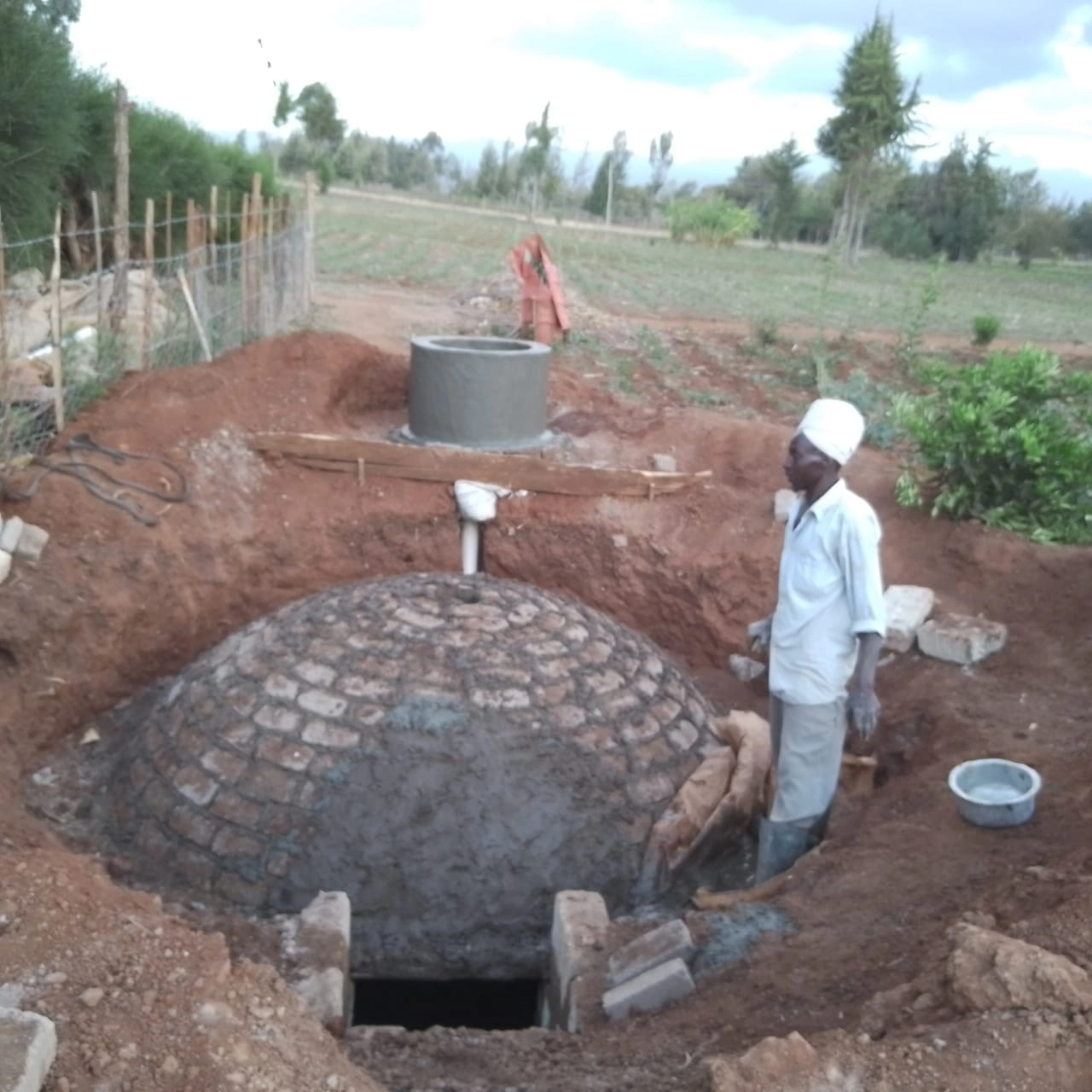
Winnie
September 30, 2024 at 5:53 amGreat info.